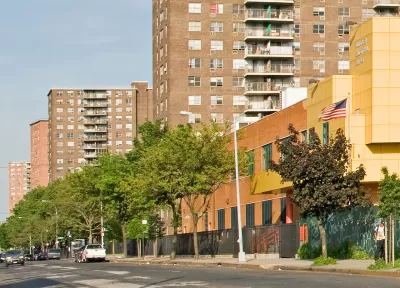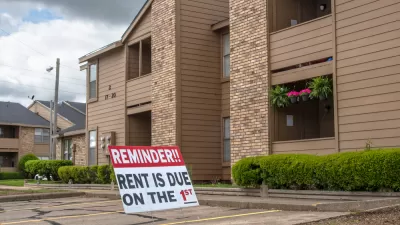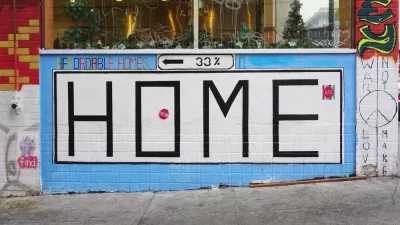An article in The Nation rejects the notion that the market will solve the country's current affordable housing crisis.

Mathew Gordon Lasner writes a history of public housing, while also making an impassioned plea for cities to build a coalition of support for new, "deep" subsidies for public housing in the future. Lasner weites of the housing affordability crisis that is striking cities and towns of all sizes and in all geographic areas of the country.
Tax credits, low-interest loans, land trusts, zoning, and other land-use regulations have all been deployed in the service of lowering the cost of housing for increasingly rent-burdened Americans. Yet amid these myriad offerings, the one remedy capable of providing the quantity and quality of affordable housing we need is not even on the menu: deep cash subsidies for construction and/or operation of buildings.
Lasner is essentially arguing for a return to a mode first implemented 140 years ago, with the first subsidized apartment complex in the country—Home Buildings in Cobble Hill, Brooklyn. The bulk of the article is devoted to tracing a details history of the rise and fall of subsidized housing.
That history all leads up to Lasner's present appeal: "what if people in cities suffering from housing inequality all over the country joined forces to begin pushing for this solution together?" Noting the understandable concern about the past failures of public housing, Lasner notes that "[p]Public housing could look and feel very different today than in the past, adding "[t]The key difference would be that we would have a lot more of this nonprofit-developed housing than now, and it would be a lot more affordable."
FULL STORY: The Case for Public Housing

Alabama: Trump Terminates Settlements for Black Communities Harmed By Raw Sewage
Trump deemed the landmark civil rights agreement “illegal DEI and environmental justice policy.”

Planetizen Federal Action Tracker
A weekly monitor of how Trump’s orders and actions are impacting planners and planning in America.

Why Should We Subsidize Public Transportation?
Many public transit agencies face financial stress due to rising costs, declining fare revenue, and declining subsidies. Transit advocates must provide a strong business case for increasing public transit funding.

Understanding Road Diets
An explainer from Momentum highlights the advantages of reducing vehicle lanes in favor of more bike, transit, and pedestrian infrastructure.

New California Law Regulates Warehouse Pollution
A new law tightens building and emissions regulations for large distribution warehouses to mitigate air pollution and traffic in surrounding communities.

Phoenix Announces Opening Date for Light Rail Extension
The South Central extension will connect South Phoenix to downtown and other major hubs starting on June 7.
Urban Design for Planners 1: Software Tools
This six-course series explores essential urban design concepts using open source software and equips planners with the tools they need to participate fully in the urban design process.
Planning for Universal Design
Learn the tools for implementing Universal Design in planning regulations.
Caltrans
Smith Gee Studio
Institute for Housing and Urban Development Studies (IHS)
City of Grandview
Harvard GSD Executive Education
Toledo-Lucas County Plan Commissions
Salt Lake City
NYU Wagner Graduate School of Public Service





























